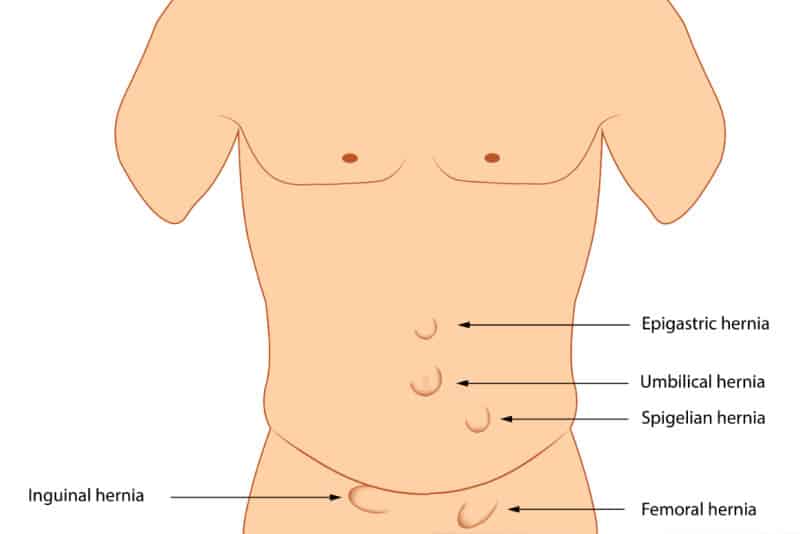Hernia Scan Marlow
Same Day Private Hernia Scans near Marlow performed by a Specialist Consultant Radiologist.

Private Hernia Scan near Marlow
Welcome to Sonorad, a leading private ultrasound clinic offering hernia scans near Marlow. At our Slough ultrasound clinic, we offer high-quality, affordable private Hernia ultrasound scans in a friendly, relaxed and professional environment. A GP referral is not required, you can self-refer. We offer scans to men and women over 18 years of age.
We have an online booking form where you can book a hernia scan appointment.

IF YOU DO NOT HAVE A REFERRAL LETTER FROM YOUR GP OR CLINICIAN, YOU MUST BOOK A CONSULTATION WITH OUR CONSULTANT RADIOLOGIST BEFORE OR WITH THE BOOKING OF AN INJECTION OR GUIDED TREATMENT.
What is a hernia?
A hernia is an organ or tissue that protrudes through a weakened area in the surrounding muscle or connective tissue. The abdominal region, spanning from the lower rib cage to the hip bones, comprises a vital group of robustly interconnected muscles.
These muscles support many daily activities, including lifting objects, maintaining an upright posture, and facilitating bowel movements. These layers of muscular tissue also serve as a protective barrier for your internal organs.

Exceptional & Professional Care
Our private ultrasound scan clinic has a top priority of the welfare of our visitors. Our Specialists actively practice their specialities at leading hospitals in the UK and across the NHS, ensuring you receive the highest level of care. Our clinic and team are fully registered and regulated for practice in the United Kingdom. Our patients should expect nothing less.
Comfortable & Painless Ultrasound
Performed by Consultant Radiologists
Same-Day Results For Peace of Mind
Expert Care, Professional Advice
Why patients choose Sonorad
“I recently booked an Ultrasound with Dr Mahmood online.to avoid the NHS waiting list. The booking process was very straightforward and I arranged a short notice appointment.
The atmosphere was professional, friendly and reassuring, making me feel comfortable. Dr Mahmood took the time to listen to my concerns and was very thorough, explaining and identifying issues and procedures.”
I would most certainly recommend this service and would use it again if required– Elizabeth D
I highly recommend Sonorad as the service provided was very professional and efficient. I was able to receive an appointment, diagnosis and report very quickly. Dr Mahmood and his assistant made me feel at ease in a friendly environment. A thorough explanation was given whilst the ultrasound scan was being performed putting my mind at ease. Excellent experience overall! – Madiha Shahid
Hernia Ultrasound Scan FAQs
What is Hernia and how does it look like?
Hernia is a bulge of the internal organ or soft tissue through a naturally occurring defect, or acquired weaker area in the muscle or surrounding abdominal wall.
What are the most common locations of hernia?
Most hernias develop in the anterior abdominal wall. But they can arise in other locations:
- One typical location is in the abdomen at the top of the thigh. This can be visible sometimes but not always. These are called inguinal or femoral hernia
- In the front midline of the tummy.
- Around or in the umbilicus are known as umbilical or para umbilical.
- In the lower chest through a defect in the diaphragm called diaphragmatic hernia.
- Surgical scars can weaken the abdominal wall and can result in incisional hernia.
- Rarely hernias can develop in the muscles and may pose a diagnostic problem. However, these can be assessed dynamically by ultrasound.
What are the typical symptoms of a hernia?
Most of the time the hernias can be silent or may cause very few symptoms. The patients can feel a lump or swelling in the abdominal wall or inguinal region (Groin). This may become visible when squatting, bending over or on exertion. Rarely this may only present discomfort or pain and no obvious swelling.
What are common causes of hernias?
Typically, excessive exertion or improper lifting techniques cause hernias. Occasionally, hernias can also arise from severe exertion or force, such as during or immediately after childbirth, rather than during the gradual expansion of the abdomen throughout pregnancy.
What are the common causes of hernias?
Natural causes:
- Ageing plays a big role in the weakening of body muscles due to wear and tear.
- Hernias can develop in naturally occurring defects in the abdominal wall.
Risk factors that may cause hernias
- Injury
- Surgery
- Jobs involving heavy lifting or many hours long hours of standing
- Chronic cough
- Chronic constipation and straining
- Multiple pregnancies
Where do hernias typically occur?
Various types of hernias exist, with the belly and groin regions being the most common.
The primary classifications of hernias include:
- A ventral hernia – also known as an abdominal hernia, refers to a condition in which abdominal organs or tissues protrude through a weakness in the abdominal wall. A weakening or breach in the abdominal wall causes an organ or tissue protrusion known as a hernia.
- Umbilical hernia – which occurs in the region around the navel An umbilical hernia appears in the area around the belly button or navel.
- Incisional hernia – Incisional hernias are a specific type of ventral hernia that develops at the location of a previous abdominal operation.
- Hiatal Hernia – a hiatal hernia occurs when the top portion of the stomach protrudes into the chest through a small breach in the diaphragm, the muscular partition between the abdomen and the chest.
- Inguinal hernia – An inguinal hernia is a protrusion that develops in the pelvic or groin area. When they suspect a hernia, GPs frequently request scanning for this type of hernia when they suspect one. Inguinal hernias arise due to muscle weakness in the lower abdomen.
Contact Sonorad today for a private Hernia scan appointment near Marlow
How can the hernia be diagnosed?
What happens in your abdomen when you have a hernia?
A hernia is a pathological condition where a defect in the abdominal wall causes a portion of the abdominal contents to protrude. While initially causing concern for patients, it is reassuring to know that hernias are a common occurrence and effectively treatable with surgical surgery.
What is the role of an ultrasound in detecting a hernia?
Ultrasound being a non-invasive modality is the excellent, inexpensive and readily available initial modality to assess and confidently diagnose hernias. This has the capability to differentiate from other conditions such as soft tissue lumps, lymph nodes, muscle spasm or muscle weaknesses.
In indeterminate cases, the consultant radiologist will recommend for other imaging modalities to aid the diagnosis.
What is a reducible or Irreducible hernia?
What is a reducible hernia?
Hernial bulges are mostly reducible and unlikely to cause a serious problem.
What is Irreducible hernia?
If the bulging content does not reduce or can not be pushed back is known as irreducible hernia. This condition is painful and can pose a serious problem such as intestinal obstruction which would require medical emergency. This may lead to tissue death and may require urgent surgical intervention.
How is a hernia ultrasound scan performed?
During the procedure, a trained consultant radiologist or technician (sonographer) will apply a gel to your abdominal area and use a handheld device called a transducer to send and receive sound waves. The transducer captures images on a monitor, and these images are used for diagnosis.
How do I prepare for a hernia ultrasound scan?
A groin ultrasound is a safe and simple imaging procedure, targeting the area between your abdomen and upper thigh. Primarily, it’s used for inspecting muscles and soft tissues and identifying common issues like hernias (inguinal or femoral), lumps, or areas of pain and trauma. This ultrasound is particularly useful at detecting conditions such as hernias, groin lumps, swelling, and abnormal lymph nodes.
How long does a hernia ultrasound scan take?
The duration of the scan can vary but typically lasts around 30 minutes. However, it may take longer if a more detailed evaluation is required.
What is Ultrasound?
Ultrasound imaging is a non-ionising and non-invasive medical test that helps physicians diagnose and treat medical conditions. It is safe and painless. It produces pictures of the inside of the body using sound waves. Ultrasound imaging is also called sonography. It uses a small probe called a transducer and gel placed directly on the skin. High-frequency sound waves travel from the probe through the gel into the body. The probe collects the sounds that bounce back. A computer uses those sound waves to create an image. Ultrasound exams do not use radiation (No x-rays). Because ultrasound captures images in real-time, it can show the structure and motion of the body organs. Thanks to new additions microflow can detect minor inflammations. Ultrasound images of the musculoskeletal system provide pictures of muscles, tendons, ligaments, joints, nerves and soft tissues throughout the body.
For a private hernia scan at our clinic near Marlow, click here
Is it possible for ultrasound to diagnose a hernia?
Ultrasound is a quick, non-intrusive way for confirming a hernia.
Will a radiologist tell you if something is wrong?
Radiologists can go through the scan most of the time. If there is something not clear or indeterminate, the radiologist might ask you to come again or advise further tests or referral for more clarification.
Do I need GP referral to book hernia scan?
Do you offer Hernia Ultrasound Scans near me?
We operate our clinic from Manor Park Medical Centre, 2 Lerwick Drive, Slough, Berkshire SL1 3XU. Please note we are not part of Manor Park Medical Centre but use the premises.
We have people travel to us from many miles around including Windsor, High Wycombe, Ascot, Marlow, Hayes, Maidenhead, Uxbridge, West Drayton, Beaconsfield, Hounslow, Richmond, Kensington, Ealing, Wembley, Twickenham, Staines, Northwood, Teddington, Pinner, Kensington and West London.
Book an appointment for a private abdominal ultrasound scan at our clinic near Marlow
We are Here To Help
Read FAQs
Read FAQs to find out more about our ultrasound services
Message Us
Do not hesitate to reach out to us. Use our online form to message us.
Book Online
Schedule a consultation online with Sonorad
Give Us a Call
If something is unclear, give us a call directly to discuss our services.
Registered and Regulated






